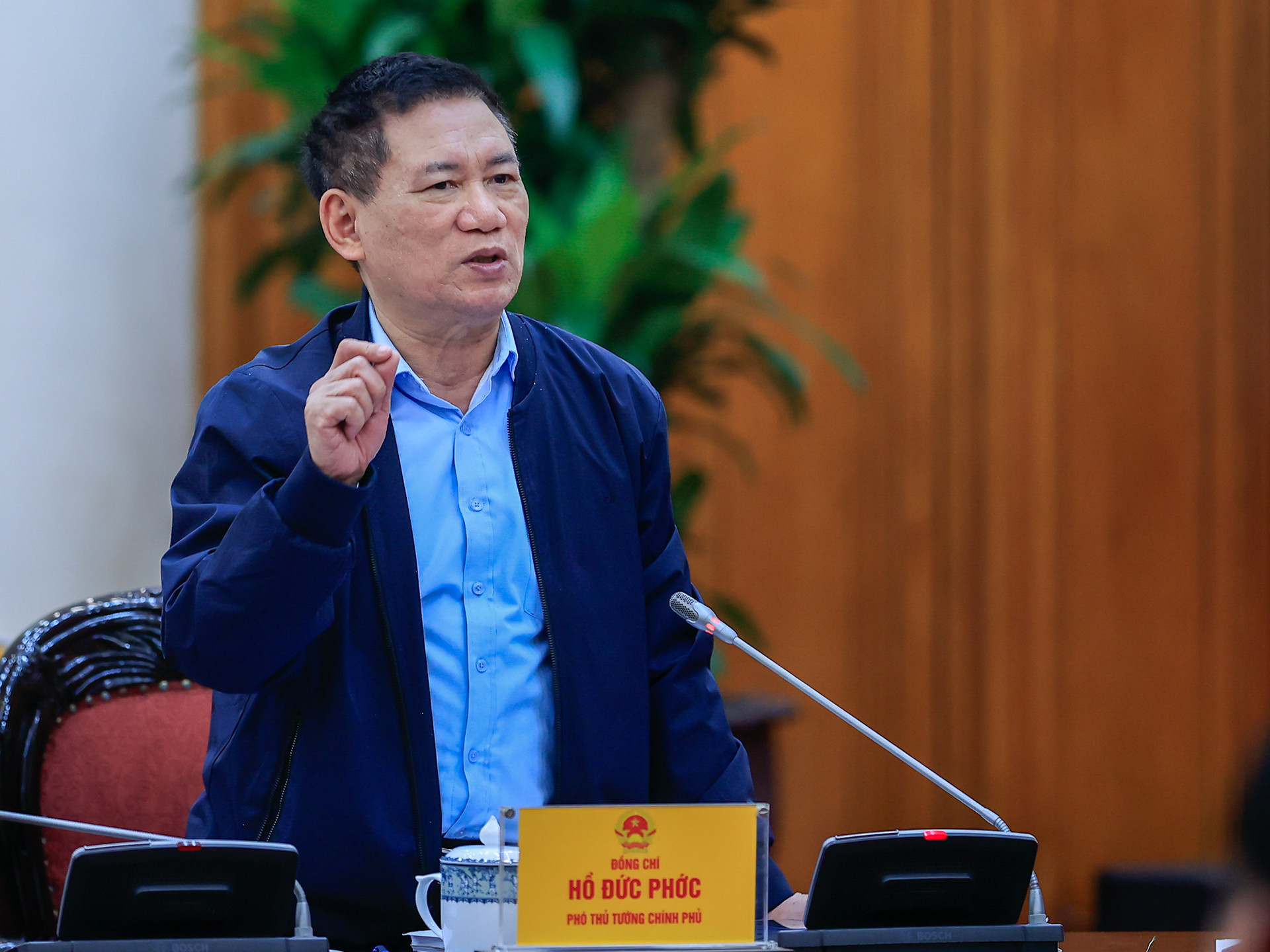
The focus is on arranging and handling assets, especially real estate, in association with streamlining the apparatus.
Deputy Prime Minister Ho Duc Phoc has signed a decision on launching the government's program on practicing thrift and combating wastefulness in 2025.
Among the key tasks, the government demands enhanced management and usage of public assets to ensure they meet standards, norms and mission requirements, focusing on organizing and handling assets during the apparatus streamlining process.
In public investment, the government directs efforts to review and eliminate ineffective, unnecessary, and urgent projects, so as to prioritize capital for key and urgent projects that serve as driving forces for quick and sustainable development.
Also, the government requires apparatus reorganization and streamlining in line with workforce reduction and restructuring to improve the quality of officials, public servants, and agencies, thus enhancing state management efficiency to meet new task demands.
It is also necessary to accelerate decentralization and empowerment linked with improving local governance self-reliance and accountability.
The government also prioritizes resource allocation, intellectual capacity, and human resources to focus on digital transformation and comprehensive development of science and technology.
In addition to strengthening inspection, examination, and audit efforts, the government has underscored the thorough recovery of suspended projects and swift reclamation of state assets and lands lost or mismanaged, following inspection, examination, and audit conclusions and recommendations.
At the same time, it is necessary to build a culture of thrift and anti-waste practices in agencies, organizations, and units. There should be measures to encourage people to practice thrift and to promote these practices among the public in manufacturing, business, and consumption.
Reviewing public assets, office buildings
The practice of thrift and anti-waste in 2025 will be implemented across all sectors, with particular focus on several areas of public asset management and use.
Accordingly, ministries, branches and localities should complete a comprehensive review of all public assets and unused or inefficiently used office premises to handle the assets within their authority, or report to higher authorities for decision making in accordance with regulations on preventing waste and asset loss.
The agencies have also been asked to complete the total inventory of public assets at agencies, organizations, and infrastructure assets invested and managed by the state. They need to ensure the updating of information about assets on the National Database on Public Assets.
In managing regular expenditures from state budget, the government clearly states that in addition to the required 10 percent regular expenditure savings for wage reform, agencies need to save another 10 percent of increased regular expenditure estimates for 2025 compared to 2024.
This saving will be used to reduce the state budget deficit or allocated for urgent needs, arising tasks, implementing social welfare duties for each ministry, central agencies, localities, or increasing public investment spending.
The government also tasks reducing direct support from the state budget to public service units.
It has called for stricter discipline and oversight in public investment, firm handling of violations hindering disbursement and capital allocation progress, and individual liability for departmemt heads for delayed implementation and disbursement.
It is also necessary at the same time to expedite the completion of projects utilizing public and state capital, ensuring their early exploitation and use, not allowing waste, and resolving longstanding difficulties and obstacles in PPP projects as per regulations.
Nguyen Huy Tien, Prosecutor General of the Supreme People's Procuracy, said waste often causes substantial damage, sometimes greater than the consequences of corruption. In some cases, large assets and projects remain frozen because of extended periods of trial procedures.
Nguyen Huu Chinh, former Chief Justice of the Hanoi People's Court, at the latest National Assembly session highlighted numerous significant cases with complex nature taking extended investigation times, some lasting 1-2 years or even longer.
By the time courts address the issue, evidence such as workshops, equipment, machinery, and vehicles become unusable, reduced to mere scrap, "causing substantial waste and damage to litigants," Chinh said.
In late October 2024, local newspapers reported that 57 projects were named for the fight against wastefulness, including projects on Bach Mai and Viet Duc Friendship Hospital (Campus 2 in Ha Nam), and high-tides prevention in HCM City.
Deputy Head of the Central Internal Affairs Commission Nguyen Huu Dong then said waste fighting should be the focus of nine projects in the construction sector; 22 in the electricity sector, coal and mineral industry; 15 in transport; seven in education, culture, sports and tourism sectors; and four in the agriculture sector.
Thu Hang